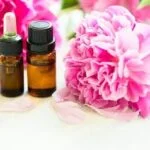Aromatherapy is a holistic healing treatment that uses natural plant extracts to promote health and well-being. This article will explore the effects of aromatherapy on the body systems, covering its history and origins, popular essential oils used, and the science behind how it works. Essential oils have been used for centuries for their therapeutic properties, and research continues to uncover their benefits for various body systems.
Aromatherapy dates back thousands of years and has been practiced in ancient civilizations such as Egypt, China, and India. The use of aromatic plants for medicinal purposes has evolved over time into what we now know as aromatherapy. In modern times, essential oils are extracted from plants through methods such as steam distillation or cold-press extraction and are used in a variety of wellness practices.
Different essential oils have different effects on the body, ranging from relaxation and stress relief to potential physical health benefits. The impact of aromatherapy on body systems – including the respiratory system, nervous system, digestive system, circulatory system, skin and hair care – will be explored to provide a comprehensive understanding of its potential holistic benefits.
The Science Behind Aromatherapy
Aromatherapy has been used for centuries as a holistic approach to promoting overall well-being. The use of essential oils in aromatherapy can have a profound impact on the body’s various systems. Understanding the science behind aromatherapy can shed light on how these essential oils work to provide therapeutic benefits.
How Do Essential Oils Work on the Body?
Essential oils are highly concentrated plant extracts that contain potent chemical compounds. When these compounds are inhaled or applied to the skin, they can interact with the body’s systems in unique ways. For example, certain essential oils may have anti-inflammatory, antimicrobial, or calming effects when introduced into the body.
The Role of Olfaction and the Limbic System in Aromatherapy
The sense of smell, or olfaction, plays a key role in how aromatherapy works. When we inhale essential oils, the olfactory receptors in our nose send signals to the limbic system – the part of the brain responsible for emotions, behavior, and memory. This connection between aroma and emotion is what makes aromatherapy such a powerful tool for promoting relaxation and mental well-being.
Research and Studies on the Effects of Aromatherapy on the Body Systems
Numerous research studies have been conducted to explore the effects of aromatherapy on various body systems. These studies have shown promising results in terms of using aromatherapy for aiding respiratory issues, promoting relaxation and stress relief, improving digestion, enhancing circulation, and benefiting skin and hair health.
As research in this field continues to grow, more evidence is emerging to support the efficacy of aromatherapy for holistic wellness. The keyword “effects of aromatherapy on the body systems” has been significant in shedding light on how specific essential oils can positively impact different bodily functions.
Effects of Aromatherapy on the Respiratory System
Aromatherapy has been known to have positive effects on the respiratory system, offering relief for various sinus and respiratory issues. Essential oils such as eucalyptus, peppermint, and tea tree oil are commonly used to alleviate symptoms of congestion, coughing, and sinusitis. These essential oils work by being inhaled through the nose, where their aromatic molecules stimulate the olfactory receptors and send signals to the brain’s limbic system, which regulates emotions, mood, and memory.
Diffusing essential oils in the air is a popular method for promoting respiratory health. This allows the therapeutic properties of the essential oils to be dispersed throughout a room or space, creating an environment that is beneficial for the respiratory system.
Many studies have shown that inhaling these essential oils can help reduce inflammation in the airways, clear congestion, and improve overall breathing function. Additionally, case studies and success stories have demonstrated how aromatherapy has provided relief for individuals suffering from asthma, bronchitis, and allergies.
Aromatherapy’s impact on the respiratory system goes beyond physical relief – it also offers psychological benefits. The soothing aroma of essential oils can help calm and relax a person who is experiencing respiratory discomfort or distress.
This dual effect on both the physical and emotional aspects of respiration demonstrates the holistic nature of aromatherapy when it comes to supporting the body systems. As more research continues to explore the effects of aromatherapy on the body systems as a whole, its potential for improving respiratory health remains promising.
Impact of Aromatherapy on the Nervous System
The use of aromatherapy has been shown to have a significant impact on the nervous system, offering a wide range of benefits for mental and emotional well-being. When inhaled, certain essential oils can produce calming and relaxing effects, helping to alleviate stress and anxiety.
This is due to the direct connection between the olfactory system and the limbic system in the brain, which is responsible for regulating emotions and memory. Research has indicated that inhaling essential oils such as lavender, chamomile, and frankincense can help promote a sense of calm and relaxation, making them valuable tools for managing everyday stressors.
In addition to reducing stress and anxiety, aromatherapy has also been found to promote better sleep patterns. Certain essential oils have sedative properties that can help improve sleep quality by inducing a state of deep relaxation.
Oils like bergamot, sandalwood, and clary sage are commonly used for their ability to calm the mind and prepare the body for restful sleep. By incorporating these essential oils into bedtime routines through methods such as diffusing or adding a few drops to pillows or bedding, individuals may experience more restorative sleep patterns.
Furthermore, the impact of aromatherapy on mental wellness extends beyond just mood regulation. The use of essential oils in aromatherapy has also been linked to improved cognitive function and alertness. Oils like peppermint and rosemary are known for their stimulating properties that can help enhance focus and concentration levels.
Whether used during periods of intense work or study, or even incorporated into daily meditation practices, these oils can provide a natural way to support mental clarity. As awareness surrounding the effects of aromatherapy on body systems continues to grow, many individuals are turning to these natural remedies as complementary approaches to supporting overall well-being.
- Aromatherapy’s ability to reduce stress & anxiety
- Essential oils that promote better sleep
- Impact of aromatherapy on cognitive function
Aromatherapy and the Digestive System
Aromatherapy has been found to have various positive effects on the body systems, including the digestive system. Essential oils have been used for centuries to aid in digestion, reduce bloating, and promote overall digestive wellness.
When inhaled or applied topically, certain essential oils can have a soothing effect on the stomach and intestines. The effects of aromatherapy on the digestive system are attributed to the compounds in the essential oils that can help stimulate the production of digestive enzymes and reduce inflammation.
One of the most popular ways to use essential oils for digestive health is through aromatherapy massage. By diluting essential oils with a carrier oil and applying them to the abdomen, individuals can experience relief from indigestion, gas, and bloating. Some common essential oils used for digestive health include peppermint, ginger, fennel, and chamomile. These oils are known for their ability to calm the muscles of the gastrointestinal tract and alleviate discomfort associated with poor digestion.
In addition to massage, aromatherapy can also be incorporated into daily routines by using essential oil-infused teas or tinctures. Peppermint tea, for example, is often recommended for its ability to relieve stomach aches and ease digestion. When used properly and under the guidance of a qualified practitioner, aromatherapy can play a beneficial role in supporting overall digestive wellness.
As with any alternative therapy, it’s important to be mindful of individual sensitivities or allergies when using essential oils for digestive support. Overall though, utilizing aromatherapy for improving digestion has shown promising results in various studies on effects of aromatherapy on the body systems.
Aromatherapy and the Circulatory System
Aromatherapy holds great potential in positively impacting the circulatory system. The use of essential oils such as rosemary, black pepper, and ginger has been found to be effective in improving circulation and blood flow. These oils are known for their warming properties which can help dilate blood vessels and promote better blood circulation throughout the body. Additionally, the use of aromatherapy for relieving muscle tension and cramps can also contribute to overall circulatory health.
Research has shown that certain essential oils used in aromatherapy can have a direct impact on heart health. For example, lavender oil has been found to lower blood pressure and heart rate, promoting a more relaxed state which is beneficial for the cardiovascular system. Furthermore, the calming effects of aromatherapy can reduce stress and anxiety levels, thus indirectly benefiting the heart’s overall health.
One study published in the Journal of Alternative and Complementary Medicine found that inhaling a combination of lavender, ylang-ylang, marjoram, and neroli essential oils resulted in significant reductions in both systolic and diastolic blood pressure levels among pre-hypertensive and hypertensive individuals. This demonstrates the powerful effects of aromatherapy on the body systems, particularly on the circulatory system.
| Essential Oil | Circulatory System Benefit |
|---|---|
| Rosemary | Improves circulation by dilating blood vessels |
| Lavender | Lowers blood pressure and heart rate |
| Ginger | Promotes better blood flow through its warming properties |
Aromatherapy for Skin and Hair Care
Aromatherapy has been found to have various positive effects on the body systems, including the skin and hair. When used properly, essential oils can promote skin rejuvenation, aid in treating acne, and improve scalp health and hair growth. Here are some key ways in which aromatherapy can benefit skin and hair care:
- Benefits of essential oils for skin rejuvenation: Certain essential oils possess properties that can help in rejuvenating the skin, reducing the appearance of fine lines and wrinkles, and promoting a more youthful complexion. For example, lavender oil has anti-inflammatory and antioxidant properties that can aid in soothing and healing the skin.
- Aromatherapy for scalp health and hair growth: Essential oils such as rosemary and peppermint have been shown to support scalp health and stimulate hair follicles, potentially leading to improved hair growth. These oils can be added to carrier oils such as coconut or jojoba oil for use in scalp massages or homemade hair masks.
- Safety precautions and best practices for using essential oils topically: It is crucial to dilute essential oils properly before applying them to the skin or scalp. Essential oils are highly concentrated and can cause irritation if not used correctly. Patch testing is also recommended to ensure that an individual does not have an allergic reaction to a specific oil.
When considering the effects of aromatherapy on the body systems, it is clear that incorporating essential oils into skincare and haircare routines can provide a natural alternative for promoting wellness without relying solely on commercial products with potentially harmful ingredients.
For those interested in exploring aromatherapy for skin and hair care, it is advisable to seek guidance from qualified aromatherapists or skincare professionals who can recommend appropriate essential oils based on individual needs and concerns. As with any holistic approach to self-care, it’s important to understand how different essential oils interact with individual body chemistry to maximize their benefits while minimizing potential side effects.
Incorporating Aromatherapy Into Daily Life
Aromatherapy has been found to have several positive effects on the body systems, making it a popular choice for those looking to improve their overall well-being. When essential oils are inhaled or applied to the skin, they can affect the body through several mechanisms, including the limbic system and olfaction. The sense of smell sends signals to the brain, which then triggers a response in various body systems.
One of the easiest ways to incorporate aromatherapy into daily life is by using essential oils in self-care routines. Adding a few drops of lavender or chamomile oil to a warm bath can promote relaxation and reduce feelings of stress and anxiety. Additionally, using an essential oil diffuser at home can help create a calming atmosphere and improve overall mood.
For those who practice yoga or meditation, incorporating aromatherapy can further enhance the experience. Diffusing uplifting scents such as citrus or peppermint essential oils during these activities can help increase focus and mental clarity. Many practitioners also use specific essential oils for deep breathing exercises to promote mindfulness and relaxation.
For beginners interested in getting started with aromatherapy at home, it is important to understand the safety precautions and best practices for using essential oils. Some oils may cause skin irritation if applied directly without a carrier oil, while others should be avoided during pregnancy or by individuals with certain health conditions. It’s crucial to do thorough research and consult with a qualified aromatherapist before starting any new regimen involving essential oils.
| Body System | Effects of Aromatherapy |
|---|---|
| Respiratory System | Can help with sinus and respiratory issues through diffusing essential oils |
| Nervous System | Calming effects of certain essential oils for stress relief; promotes better sleep and mental wellness |
| Digestive System | Aids digestive health; massages impact digestive system positively |
Conclusion
In conclusion, Aromatherapy has been shown to have a significant impact on various body systems, including the respiratory system, nervous system, digestive system, circulatory system, and skin and hair care. Through the use of essential oils, Aromatherapy has demonstrated its ability to alleviate sinus and respiratory issues, promote relaxation and stress relief, improve digestive health, enhance circulation and blood flow, rejuvenate the skin, and even aid in hair growth.
The effects of aromatherapy on the body systems are backed by research and studies that continue to provide evidence of its therapeutic benefits.
The holistic benefits of Aromatherapy cannot be understated. Not only does it address physical ailments and conditions through its effects on the body systems but it also supports mental wellness and emotional balance. By incorporating Aromatherapy into daily life through self-care routines, yoga and meditation practices, individuals can experience a sense of overall well-being that extends beyond just physical health.
In closing, this article serves as an invitation for readers to explore the world of Aromatherapy for their own well-being. Whether seeking relief from specific ailments or simply looking to enhance one’s quality of life through natural means, Aromatherapy offers a versatile and effective approach to achieving optimal health.
As more people embrace the power of essential oils in promoting wellness, it is evident that Aromatherapy will continue to be an integral part of holistic healthcare in the future.
Frequently Asked Questions
What System Does Aromatherapy Affect?
Aromatherapy affects the limbic system, which is the part of the brain that plays a role in emotions, behaviors, sense of smell, and long-term memory. When essential oils are inhaled, they can directly impact this system.
How Does Aromatherapy Help the Body?
Aromatherapy helps the body in various ways. It can promote relaxation and reduce stress, improve sleep quality, alleviate headaches, and even aid in digestion. Different essential oils have different effects on the body, offering a wide range of benefits.
What Part of the Body Is Most Affected by Aromatherapy?
The part of the body most affected by aromatherapy is the central nervous system, particularly the brain and its functions related to mood and emotions. Since essential oils can influence the limbic system, they can have a significant impact on our mental well-being and emotional state.

Are you looking for a natural way to improve your health and wellbeing?
If so, aromatherapy may be the answer for you.





